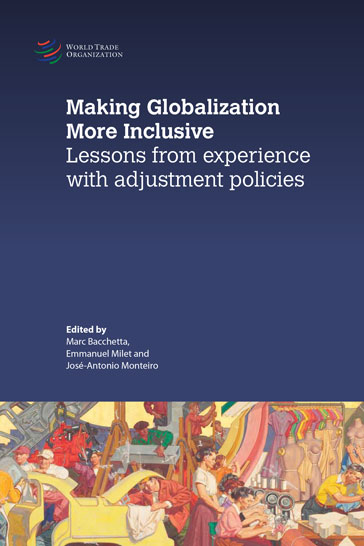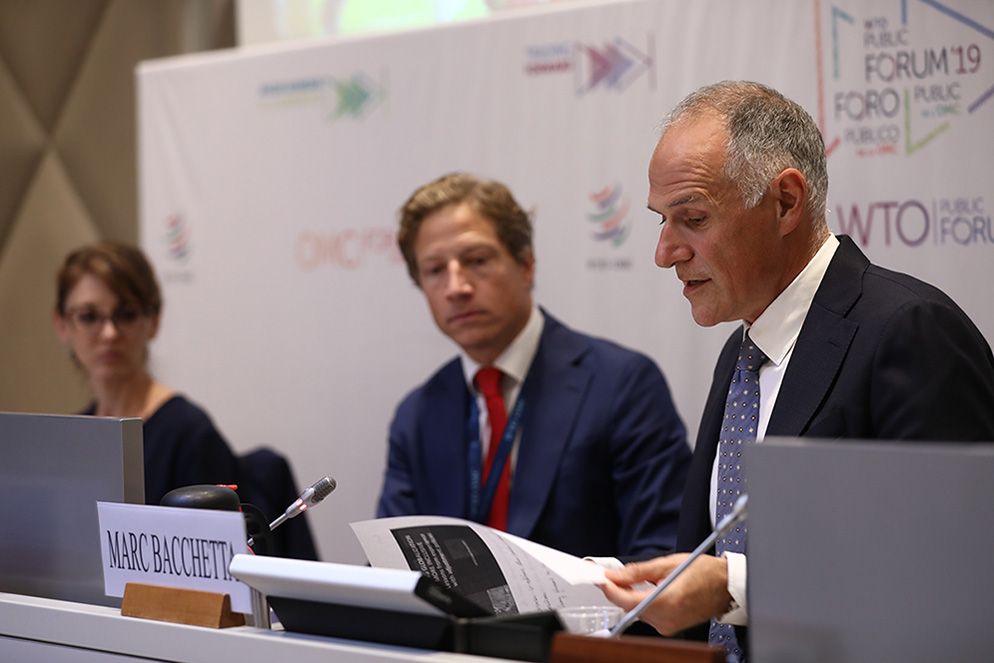More
The increasing integration of countries into world trade along with the rapid pace of technological change has helped raise the living standards of billions around the world; however, this progress has had an impact on the labour market, with the expansion of certain industries and the decline of others. The new WTO publication, "Making globalization more inclusive: Lessons from experience with adjustment policies", reviews the measures governments have taken to reduce any adverse effects that trade and technological advances may have on labour markets.
In addition to an extensive review of the literature on this topic, the publication provides case studies on adjustment polices implemented in seven countries across four continents namely Denmark, Brazil, Germany, Korea, India, South Africa, and Morocco. Each case study examines the labour market of the relevant country, describes the adjustment policy measures implemented there, and examines how these have helped the workforce following major economic shifts linked to globalization.
The publication contributes to the policy debate by helping increase understanding on how governments can ensure that benefits from trade are shared more broadly. It shows how the design of appropriate adjustment policies can respond to concerns regarding the effects of trade and technology on labour markets.
The book was financed by the government of Sweden in the framework of the so-called Global Deal launched two years ago by Swedish Prime Minister Stefan Löfven in cooperation with the International Labour Organization (ILO) and the OECD.
Mikael Anzén, Ambassador and Permanent Representative of Sweden to the WTO, said at the book launch that this publication is about the need to adjust labour market policies in order to address the growing scepticism over the benefits of free trade and globalization and the rising distrust regarding political solutions. “Trade for us and for many countries has been one of the greatest catalysts for wealth in history. But we also see a growing consensus that there are deepening inequalities. Exclusion due to trade is one of the most pressing political issues we are talking about now,” Ambassador Anzén said.
Marc Bacchetta, Chief of the Economic Modelling and Quantitative Analysis Section in the WTO's Economic Research and Statistics Division (ESRD), said the book looks at answering key questions, such as whether more attention should be paid to facilitating adjustment to trade or other shocks as opposed to having in place appropriate general-purpose active and passive labour market policies, what tools can be used to effectively evaluate these policies, and how government can adapt to local circumstances when a one size-fits-all approach does not work.
Veronica Escudero, Chief of the ILO's Labour Market Trends and Policy Evaluation Unit, said that general labour market policies appear to be preferable to specific policies focussing on trade shocks. General policies are more proactive as they guarantee flexibility in government support and the provision of opportunities to individuals. Choosing strategically the policies that fill gaps in protection can help extend the knowledge on specific labour market adjustment policies, she said.
The publication can be downloaded here. Printed copies can be purchased from the WTO's Online Bookshop.
Share
Share
Problems viewing this page? If so, please contact [email protected] giving details of the operating system and web browser you are using.

